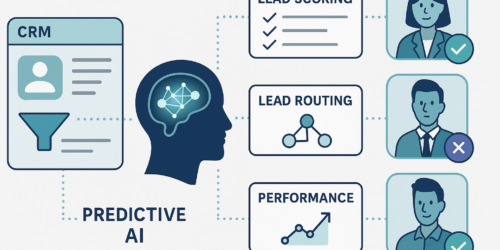One of the most common questions sales teams ask is, “How long should we work our leads?” The answer isn’t as straightforward as many think. Different strategies work for different organizations. Some businesses see success by converting leads quickly, while others find that nurturing leads over days or weeks yields better results.
Want to discover how to leverage predictive data in your sales and marketing? Schedule a Demo Today!
Finding What Works for Your Team
The key to an effective lead management strategy is not about mimicking what others are doing. Instead, you must understand your team’s strengths and adapt your approach based on what works best for you. For instance, if your team excels at closing deals early in the sales cycle, focus on strategies that support quick conversion. On the other hand, if your team is good at building relationships over time, you should focus on nurturing leads for longer periods.
Assess and Adapt: Tailoring Your Approach
Evaluate how your team handles leads at different stages of the sales process. Are they more effective when engaging with leads early, or do they need more time to nurture leads through effective lead follow-up calls and personalized emails? Once you have this understanding, you can tailor your approach accordingly.
For example:
- If your team performs well with quick conversions, a strong predictive lead scoring system can help prioritize high-value leads right away.
- If nurturing is your strength, focus on effective lead follow-up and personalized interactions to build relationships.
Leveraging AI to Improve Lead Management
AI-driven tools like predictive lead scoring are game-changers for understanding lead potential. These tools analyze data points such as lead behavior and demographics to predict the best engagement methods and timeframes. They help you decide whether a lead should be contacted immediately or nurtured over time.
For example, in industries like mortgage lending, lead scoring can involve analyzing factors like credit score, income, and down payment amount to determine a lead’s readiness to buy. With this data, you can focus on leads likely to close, improving your conversion rates and sales efficiency.
Read More: How AI is Transforming Marketing Automation in 2024
Measuring Success: What Metrics Matter?
Key performance indicators (KPIs) will let you know if your AI in sales strategy works. Pay attention to:
- Lead Conversion Rate
- Lead Response Time
- Lead Quality Score
Regularly review these metrics to see where your team excels and where improvements are needed. For example, if you notice that most conversions happen after the fifth follow-up, adjust your strategy to include more nurturing touches for similar leads.
Overcoming Common Challenges
One challenge many sales teams face is a lack of data or using outdated methods to score leads. Without lead scoring, teams may waste time on low-potential leads while missing opportunities with high-value ones. A predictive lead scoring model can help overcome these challenges by providing real-time insights into lead potential.
AI and machine learning models can continuously analyze data from past sales interactions and market trends, allowing your team to refine their approach and improve their chances of success. This AI in sales strategy ensures you’re always working with the most up-to-date information and making informed decisions.
Optimize Your Lead Management Strategy for Better Results
There’s no universal rule for how long you should work your leads. It’s about understanding your team’s strengths and using data to guide your lead management strategy. With the right approach, whether you’re closing deals quickly or nurturing leads over time, you can optimize your sales process for better results.


